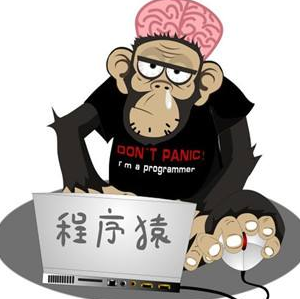Thinking In Java 异常这一节的这是不是错了?
在Exception restrictions这一小节里边,里面有一大段代码
class BaseballException extends Exception {}
class Foul extends BaseballException {}
class Strike extends BaseballException {}
abstract class Inning {
public Inning() throws BaseballException {}
public void event() throws BaseballException {
// Doesn’t actually have to throw anything
}
public abstract void atBat() throws Strike, Foul;
public void walk() {} // Throws no checked exceptions
}
class StormException extends Exception {}
class RainedOut extends StormException {}
class PopFoul extends Foul {}
interface Storm {
public void event() throws RainedOut;
public void rainHard() throws RainedOut;
}
public class StormyInning extends Inning implements Storm {
// OK to add new exceptions for constructors, but you
// must deal with the base constructor exceptions:
public StormyInning() throws RainedOut, BaseballException {}
public StormyInning(String s) throws Foul, BaseballException {}
// Regular methods must conform to base class:
//! void walk() throws PopFoul {} //Compile error
// Interface CANNOT add exceptions to existing methods from the base class:
//! public void event() throws RainedOut {} //Compile error
// If the method doesn’t already exist in the
// base class, the exception is OK:
@Override
public void rainHard() throws RainedOut {}
// You can choose to not throw any exceptions,
// even if the base version does:
@Override
public void event() {}
// Overridden methods can throw inherited exceptions:
@Override
public void atBat() throws PopFoul {}
public static void main(String[] args) {
try {
StormyInning si = new StormyInning();
si.atBat(); // Strike not thrown in derived version.
} catch(PopFoul e) { //caused by si.atBat();
System.out.println("Pop foul");
} catch(RainedOut e) { //StormyInning()
System.out.println("Rained out");
} catch(BaseballException e) { //StormyInning()
System.out.println("Generic baseball exception");
}
try {
// What happens if you upcast?
Inning i = new StormyInning();
i.atBat();
// You must catch the exceptions from the
// base-class version of the method:
} catch(Strike e) {
System.out.println("Strike");
} catch(Foul e) {
System.out.println("Foul");
} catch(RainedOut e) {
System.out.println("Rained out");
} catch(BaseballException e) {
System.out.println("Generic baseball exception");
}
}
} ///:~
原来代码的这段注释
// You can choose to not throw any exceptions,
// even if the base version does:
@Override
public void event() {}
你可以选择不抛出任何异常。那换而言之,我也可以根据父类来决定子类抛出哪些异常咯?比如抛出BaseballException,但我测试却不行。我觉得这里的注释是不是写得有点问题。
正常情况下这句话是对的,但这里还实现了Storm接口。
原文有这句话
When Stormylnning extends Inning and implements Storm, you’ll see that the
event()method in Storm cannot change the exception interface ofevent()in Inning.
就是说接口不能改变父类里相同方法的异常接口,给人一种子类的抛的异常就得按父类,而不按接口来的感觉。但事实上经过测试之后,子类的event方法只有不抛异常,抛RuntimeException和抛Error才能行。抛BaseballException会报错。
所以感觉作者是不是在这讲错了。用的环境是JDK1.8
-
子类的方法抛出的异常范围不能超过父类的方法抛出的异常范围,子类也可以不抛出异常;
接口的实现类可以不抛异常,也可以抛出与接口不一样的异常. 但是必须是接口定义的异常或是该异常的子类;
StormyInning不仅继承了Inning,也实现了Storm接口,Inning中的event()方法声明抛出的异常是BaseballException,Storm接口中的event()方法声明抛出的异常为RainedOut,如果你只是继承了Inning,那么抛出BaseballException异常是没问题的,但是StormyInning还实现了Storm接口,那抛出BaseballException异常就不行了2022-10-27 22:49 回答 aghcgo
aghcgo
 京公网安备 11010802041100号
京公网安备 11010802041100号